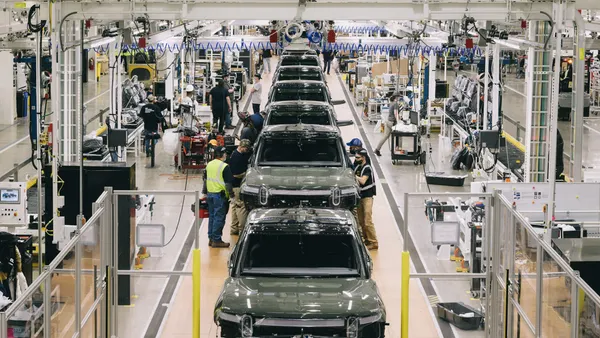The following is commentary from Rich Weissman, Director of Endicott College Gloucester's Organizational Management Program and Center for Leadership.
Several months ago I was making a presentation to a group of mid and senior level supply chain professionals. I always begin my chats with an overview of the macroeconomic issues that impact our jobs on a daily basis like the health of the economy, regulatory and compliance issues, the geopolitical environment, management pressures within our organizations, and commodity pricing. Then I ask my favorite question: What is the cost of a barrel of oil today?
Crickets.
Sure, one or two may know, but the others don’t. What is maddening is that they don’t know seem to why the cost of oil is important. Its a leading economic indicator, a reflection on the cost profiles of what they are buying, and even has an impact on transportation. To me the cost of oil is a canary in the coal mine question as it relates to understanding current events and one’s roll in the global supply chain community. It is also a gage of professional sophistication and commitment.
I worry [supply chain professionals] are far too tuned into the day-to-day activities of their jobs and losing sight of the big picture.

Rich Weissman
Director, Endicott College Gloucester, Organizational Management Program and Center for Leadership
There has never been a better time for an individual's professional development. The options are abundant: from bachelor and master degrees in supply chain management by the world's foremost universities, to professional certifications by industry associations or traditional workshops by local organizations. You could even add digital learning opportunities to the mix: it's all out there.
Yet too often these opportunities for knowledge and professional development go begging.
This not to say that this group of supply chain professionals I worked with didn’t understand their jobs. In fact, most were quite experienced and held good jobs for a long time. But I worry that they are far too tuned into the day-to-day activities of their jobs and losing sight of the big picture. And it is the big picture that I worry about.
Now that the world has finally realized that managing the supply chain is a big deal, the profession has gained notoriety and an influx of people who look at an interesting career with growth opportunities. Yet many of these newcomers look at seasoned professionals as placeholders, keeping the seats warm until experts come in. I didn’t like having to sit at the kid’s table at Thanksgiving and I don’t like some of the supply chain snobbery I am seeing. Time to fight back.
These ‘adults’ may be the same folks who are attending the big schools like Rutgers, Michigan State, and Georgia Tech and getting undergraduate and graduate degrees in logistics and supply chain management. The big manufacturing and retail firms, as well as consulting firms, scoop many of these graduates up. These aren’t bad places or bad people. Far from it. Programs and students like these validate the importance of the profession. But I tend to look at it as the 1% in the supply chain.
There has never been a better time for an individual's professional development.

Rich Weissman
Director, Endicott College Gloucester, Organizational Management Program and Center for Leadership
But there is hope for those in the rank and file. ISM, APICS, CSMCSP, and other professional associations offer wonderful educational programs, conferences, networking prospects, employment referral and professional certification. Yet, the national organizations are barely keeping pace with a declining membership and many of the local affiliates and regional bodies are feeling the effect of low membership support as well.
Many are folding, a sad commentary on professional development support by companies and individuals. It is clear that many companies cut training budgets and educational support as a cost cutting measure, but membership costs are in the ‘latte a day’ range. Just because your company will not pay for membership in an association, or for an important workshop, doesn’t mean that it is not in one’s professional self-interest to participate.
So perhaps you are not graduating from MIT with a logistics degree and a job offer in hand running supply chain analytics for big pharma, or attending a regional supply chain conference. You can still keep up and keep current. One can start right here at Supply Chain Dive! Also content aggregators like CEO Express offer free supply chain and business oriented content. Also check out the big analysts like The Hackett Group and Gartner. While they have subscription models, they also provide free reports. And when all else fails, a quick glance at the trusty newspaper, even the one in your digital driveway, has value.
There has never been an easier time to stay current in your profession. It is critical to understand the markets, the political climate, issues within the supply chain, and the drivers with your company and customers. It’s all related. And stay up to date on the cost of oil, or aluminum, or memory, or wheat … or whatever drives your supply chain.
It matters … and it is just good business.
A practitioner turned educator, Rich Weissman has more than 25 years of experience in all facets of supply chain management. He is past president of the Institute for Supply Management –Greater Boston, and the recipient of the Harry J. Graham Memorial Award, the highest honor bestowed by the Association.












